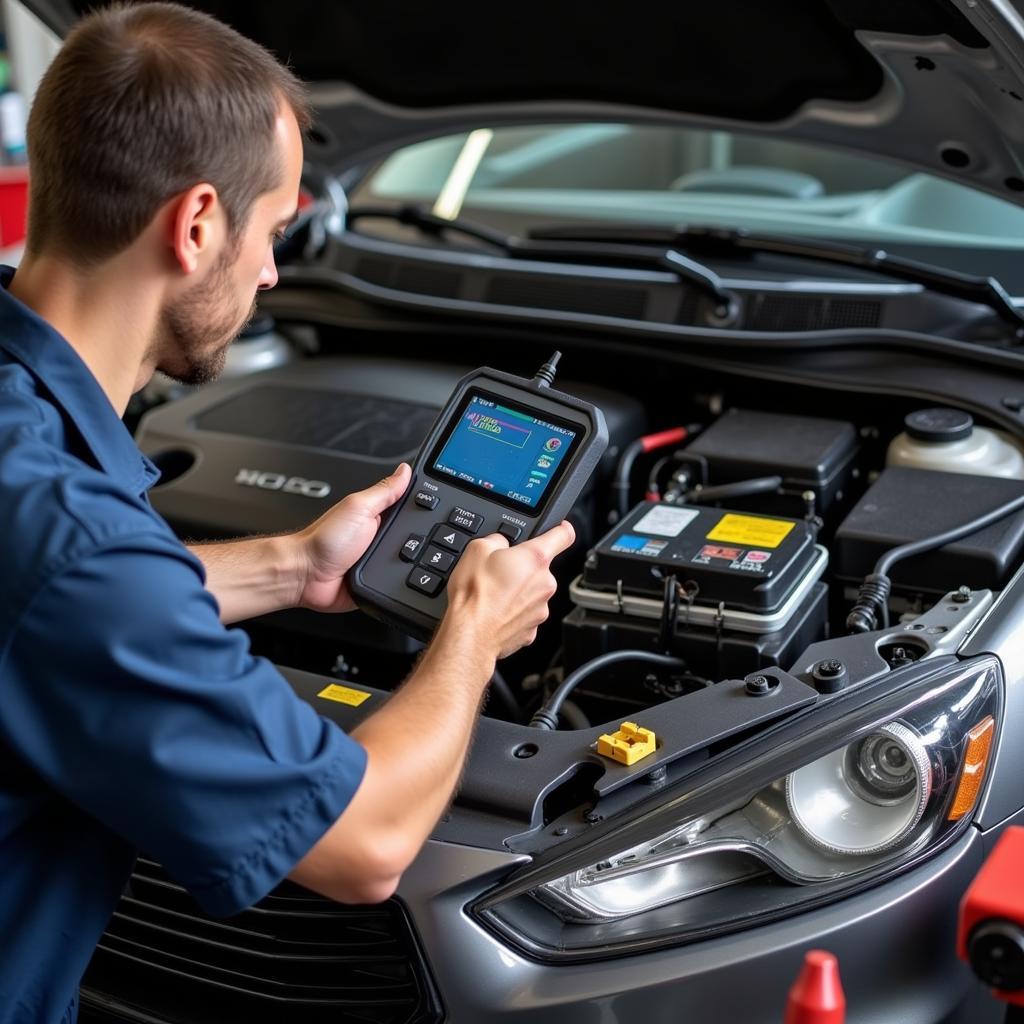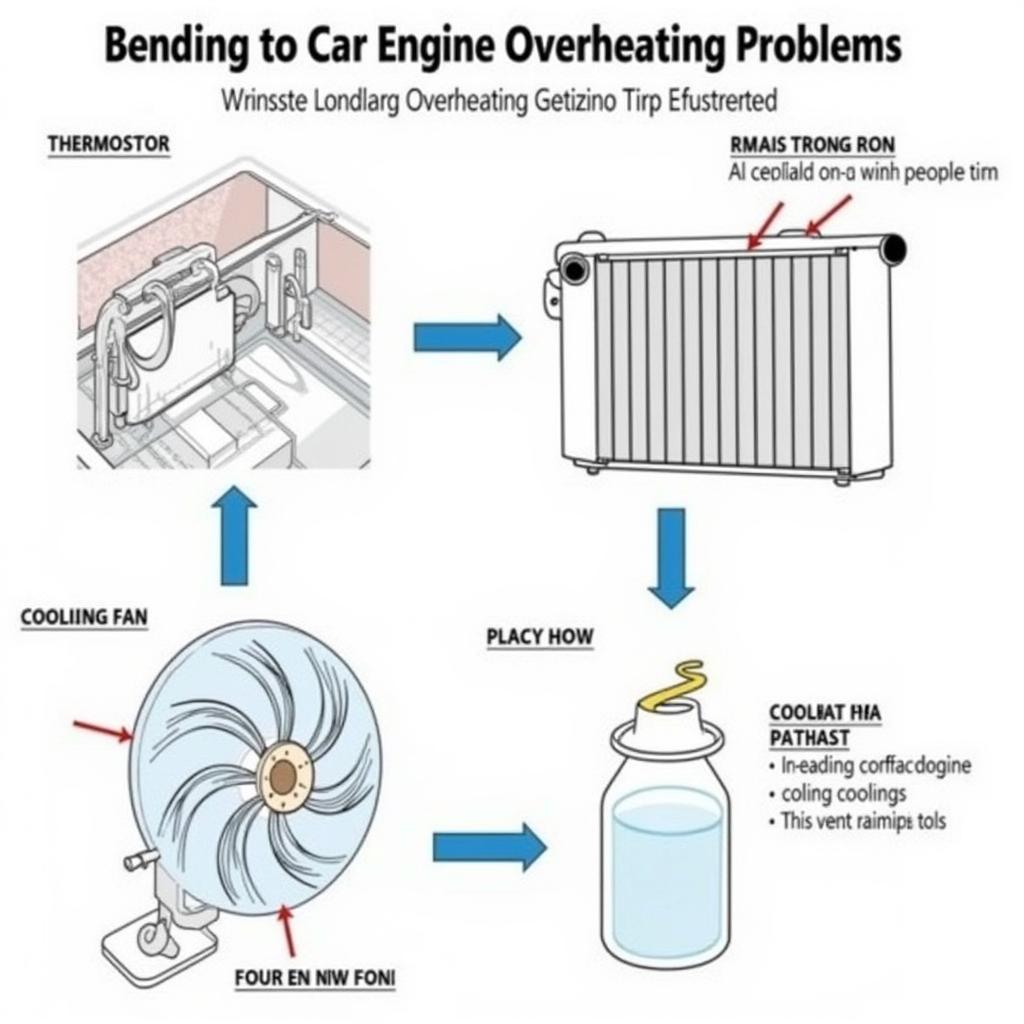Car Engine Problem Verbs. These are the words that can send shivers down a car owner’s spine. From “stalling” and “knocking” to “misfiring” and “overheating,” understanding these terms is crucial for effective troubleshooting and maintenance. Whether you’re a DIY mechanic or prefer to leave it to the professionals, knowing how to describe your car’s issues accurately can save you time, money, and unnecessary headaches.
Decoding the Car Engine Problem Verbs
Every sound, every hesitation, every whiff of something unusual coming from under the hood is your car trying to tell you something. Learning to interpret these signs, expressed through these “car engine problem verbs,” is like learning a new language. It’s the language of your car, and once you understand it, you’ll be better equipped to address any issues that arise.
Common Car Engine Problem Verbs and Their Meanings
Let’s break down some of the most common car engine problem verbs:
-
Stalling: This is when your engine suddenly stops running. Causes can range from a simple issue like a dirty air filter to more complex problems with the fuel system or ignition.
-
Knocking: A rhythmic tapping or pinging sound coming from the engine, often indicating problems with combustion. This could be due to low-quality fuel, incorrect ignition timing, or even serious internal engine damage.
-
Misfiring: This occurs when one or more cylinders fail to ignite properly. Symptoms can include rough idling, reduced power, and increased fuel consumption. Common causes include faulty spark plugs, ignition coils, or fuel injectors.
-
Overheating: As the name suggests, this is when your engine temperature exceeds the normal operating range. This can be caused by a variety of issues, including a low coolant level, a faulty thermostat, or a malfunctioning cooling fan.
-
Surging: This refers to an unexpected increase in engine speed, often experienced as a sudden jerk or lurch. Possible culprits include problems with the throttle position sensor, idle air control valve, or vacuum leaks.
 Car Engine Stalling Diagnosis
Car Engine Stalling Diagnosis
Why Understanding Car Engine Problem Verbs is Important
Knowing the right terminology allows you to communicate effectively with mechanics, saving you valuable time and money. Imagine trying to explain a “weird clunking noise” versus saying “I think my engine is knocking.” The latter provides a much clearer picture of the potential problem.
“Accurate descriptions are key,” says automotive expert, Robert Thompson, ASE Certified Master Technician. “The more specific you can be, the easier it is for us to diagnose and fix the issue quickly and efficiently.”
Troubleshooting Car Engine Problems
When faced with car engine trouble, follow these steps:
-
Identify the problem: Pay close attention to the symptoms. What do you see, hear, or smell? Use the car engine problem verbs discussed above to describe the issue.
-
Check the basics: Before panicking, ensure the simple things are in order. Is your gas tank full? Are all the fluids topped off?
-
Consult your owner’s manual: Your owner’s manual is a treasure trove of information specific to your vehicle. It often contains troubleshooting tips and maintenance schedules.
-
Seek professional help: If the problem persists, it’s best to consult a qualified mechanic.
Car Engine Problem Verbs: Your Key to a Smooth Ride
Mastering the language of car engine problem verbs empowers you to take control of your vehicle’s maintenance and repairs. Don’t let those unsettling sounds and sensations intimidate you. By understanding what they mean, you’ll be well-prepared to address any engine issues that come your way.
“Knowledge is power, especially when it comes to your car,” adds Thompson. “The more you understand about how your engine works and the common problems that can occur, the better equipped you’ll be to keep it running smoothly.”
Remember, if you’re ever in doubt or need assistance, don’t hesitate to reach out to the professionals at AutoTipPro. We’re here to help you navigate the complexities of car maintenance and repair. Contact us at +1 (641) 206-8880 or visit our office at 500 N St Mary’s St, San Antonio, TX 78205, United States.
 Car Engine Overheating Solutions
Car Engine Overheating Solutions
FAQ
- What does it mean when my car engine sputters?
- What are the most common causes of engine knocking?
- How can I prevent my car engine from overheating?
- What should I do if my car engine stalls while driving?
- What are the signs of a misfiring engine?
- How often should I get my car engine checked?
- What are some common car engine problem verbs?




Leave a Reply